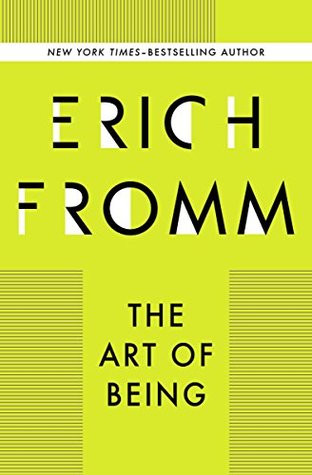More on this book
Community
Kindle Notes & Highlights
Despite the fact that our orientation toward having is rooted in the structural realities of today’s industrial culture, the overcoming of these realities consists in rediscovering man’s own psychic, intellectual, and physical powers and in his possibilities of self-determination.
Today, by and large, individual narcissism is simply being strengthened and the inability to reason and to love (which, according to Fromm, are characteristics of an orientation toward being) entrenched, as techniques of self-awareness offer new crutches of orientation toward having.
Yet each person can quickly test himself or herself by asking what he or she finds particularly valuable, thereby getting an idea of what would happen if he or she were to lose what was important and valuable: whether he or she would lose the ground from under his or her feet and whether life would then become meaningless. If one can then no longer feel any self-reliance or self-value (intrinsic to oneself), if life and work are no longer worth anything, then one is determining life according to an orientation toward having: having a fine vocation, obedient children, a good rapport, profound
...more
That person uses an external object in order to exist, in order to be oneself as he or she wishes. He or she is himself or herself only insofar as that person has something.
Just as a person has a physical capacity for self-reliance, which can be replaced with crutches if need be, so does one have psychic abilities for self-reliance, too: a capacity for love, a capacity for reason, and a capacity for productive activity. But it is also possible for a person to replace those innate psychic powers with an orientation toward having,
Love, reason, and productive activity are one’s own psychic forces that arise and grow only to the extent that they are practiced; they cannot be consumed, bought, or possessed like objects of having, but can only be practiced, exercised, ventured upon, performed. In contradistinction to objects of having—which are expended when they are used up—love, reason, and productive activity grow and increase when they are shared and used.
today’s orientation toward having is a mass phenomenon founded in the economic and social actualities of a society that has too much and that can, therefore, succumb to the temptation of letting itself be determined or defined by having.
The fact is that all living beings, animals and men, want to live, and this wish is paralyzed only under exceptional circumstances, such as unbearable pain or (in man) by the presence of passions such as love, hate, pride, loyalty that can be stronger than the wish to live. It seems that nature—or if you will, the process of evolution—has endowed every living being with the wish to live, and whatever he believes to be his reasons are only secondary thoughts by which he rationalizes this biologically given impulse.
“If you ask a good man, “Why do you love God?” you will be answered: “I don’t know—because he is God!” “Why do you love truth?” “For truth’s sake.” “Why do you love justice?” “For the sake of justice!” “Why do you love goodness?” “For goodness’ sake!” “And why do you live?” “On my honor, I don’t know—I like to live!”[i]


